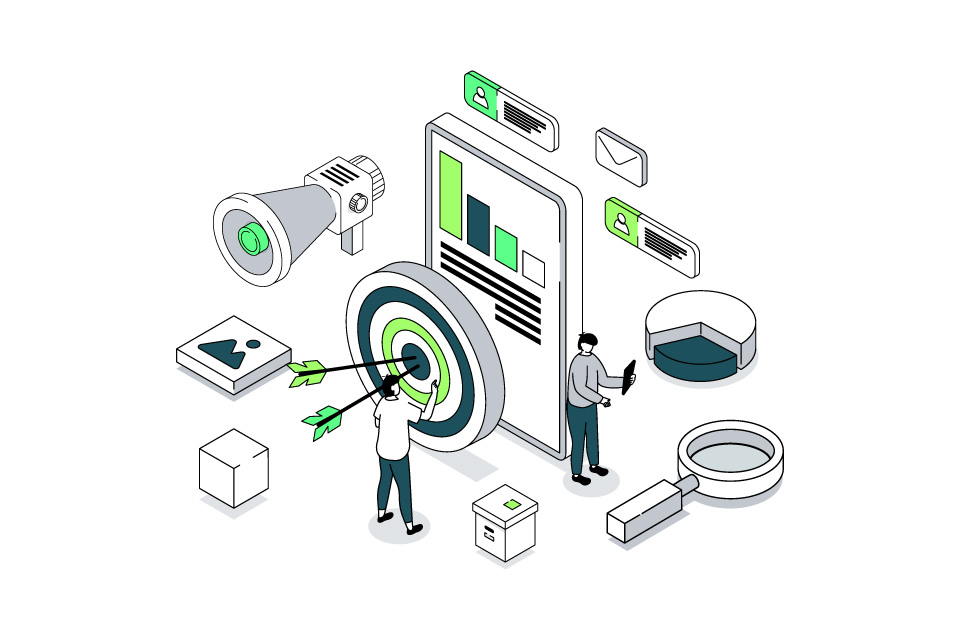Office technology trends that will surely make the most significant impact in 2025 include many trends that have been prevalent in recent years. For example, artificial intelligence (AI) has quickly overtaken the office technology industry and garnered substantial momentum as one of the most noteworthy office technology trends.
Artificial Intelligence:
AI and automation are playing a significant role in transforming the modern workplace. Many office technology products and solutions trending today utilize AI, and office technology dealers and workplace solutions providers are using artificial intelligence for sales, service, data analytics, business intelligence, and enhancing communication. AI-powered tools like chatbots, virtual assistants, and machine learning algorithms are being integrated into office environments to handle repetitive tasks, improve customer service, and streamline workflows. Automated document processing, predictive analytics, and AI-driven decision-making are helping businesses operate more efficiently. AI is also embedded in office software, such as Microsoft 365 and Google Workspace, to enhance productivity through smart suggestions, automated scheduling, and language translation.
In addition to AI, other office technology trends moving the needle in 2025 represent an array of solutions and services:
As-a-Service Models:
As-a-Service models like Software-as-a-Service (SaaS) and Data-as-a-Service (DaaS) provide cloud-based solutions on demand. SaaS delivers applications via the internet, eliminating installation needs, while DaaS offers data access and analytics without on-premise infrastructure. These models enhance scalability, cost-efficiency, and flexibility, driving digital transformation and innovation across various industries. Software-as-a-service and device-as-a-service (DaaS) models may not be the go-to business model in the office technology dealer channel, but they can’t be ignored. They allow customers to bundle devices, services, maintenance, and upgrades into a predictable monthly fee. Office technology dealers who pivot to these models can potentially build longer-term client relationships and consistent revenue streams.
The Cloud:
The cloud has become a transformative force and stands out as one of the most significant office technology trends in recent years. Cloud computing continues to revolutionize office technology by enabling seamless collaboration and remote work. The cloud is driving innovation and operational efficiency for independent office technology dealers, workplace solutions providers, and end users. Companies are increasingly adopting cloud-based platforms such as Microsoft Azure, Amazon Web Services (AWS), and Google Cloud to store and manage data securely. Cloud-based productivity tools like Slack, Zoom, and Trello have become essential for remote teams, offering real-time collaboration and project management solutions. The shift to cloud technology has also led to the development of virtual desktops and desktop-as-a-service (DaaS) solutions, allowing employees to access their work environments from any device, anywhere in the world.
Cybersecurity:
With the rise in cyber threats and data breaches, cybersecurity has become a top priority for organizations. For office technology dealers offering managed IT, cybersecurity has become an essential add-on and a customer expectation. As offices become more reliant on digital tools, businesses are investing in advanced cybersecurity solutions to protect sensitive information. Zero-trust security models, multi-factor authentication (MFA), and endpoint detection and response (EDR) are widely adopted to safeguard office networks. Additionally, AI-driven cybersecurity solutions detect and respond to threats in real-time, ensuring that businesses remain protected against evolving cyber risks.
Data Analytics:
Data analytics is collecting, processing, and analyzing data to uncover insights, trends, and patterns that inform decision-making. It involves statistical analysis, machine learning, and data visualization techniques. In business and office technology, data analytics is used to optimize operations, marketing initiatives, and customer service, where personalization and targeted marketing campaigns are driven by customer behavior analysis. Data analytics also increases efficiency in inventory management and process automation. Businesses increasingly seek data to optimize workflows and cut costs. Expect vendors and dealers to leverage devices and solutions that provide analytics on usage patterns, cost-per-page insights, and department-specific reporting to help clients make informed decisions. Data analytics are also used to detect fraud and security threats, as AI-powered analytics identify unusual patterns to prevent fraud.
Digital Transformation (DX):
Digital Transformation (DX) is the integration of digital technologies into all aspects of a business, reshaping operations and customer experiences. It enhances efficiency, innovation, and competitiveness through automation, AI, cloud computing, and data analytics. DX drives growth but requires cultural change, cybersecurity measures, and continuous adaptation to emerging technologies. Digital transformation continues to be an office technology trend, given its enormous potential in sales and marketing.
IoT (Internet of Things):
The Internet of Things (IoT) refers to the vast network of interconnected devices that communicate and share data over the internet. These devices, from smart home appliances and wearable gadgets to industrial sensors and autonomous vehicles, collect and exchange real-time information to enhance efficiency and automation. IoT enables smarter decision-making, improves convenience, and optimizes resource use. It plays a crucial role in healthcare, transportation, agriculture, and manufacturing industries. However, IoT also raises security, privacy, and data management concerns. IoT is expected to become even more integrated into daily life and business operations as technology advances. One example of how IoT is making a difference in the office technology industry and why it is considered a significant office technology trend is IoT-enabled devices that offer data-driven insights, remote diagnostics, and predictive maintenance to help businesses increase productivity and reduce downtime.


